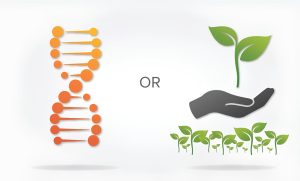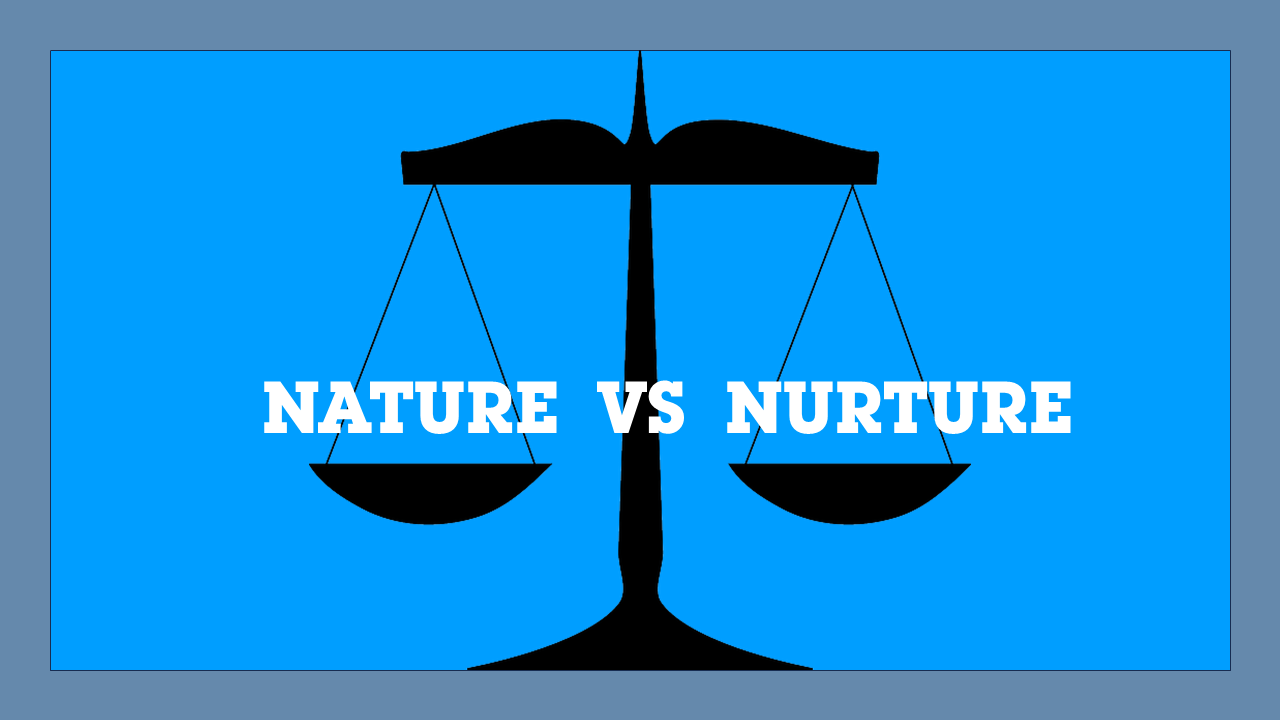Out at sea, every crew is a mix of personalities. Some people stay cool under pressure, others get fired up. Some are natural leaders; others prefer to keep their heads down and follow orders. You’ve probably wondered more than once: Why are people so different? Is it just the way they were born, or is it the life they’ve lived that made them this way? This age-old debate—nature versus nurture—is at the heart of understanding human behavior, and it’s just as relevant onboard a ship as it is in a university lecture hall.
For seafarers, understanding psychology isn’t just some academic exercise—it’s a practical tool. It helps explain why people behave the way they do under pressure, why conflicts arise in confined quarters, and why some thrive in isolation while others struggle.
By understanding the balance between nature and nurture, we can better manage not just our shipmates, but ourselves.
What Is Nature and Nurture?
Nature refers to the traits we're born with—our genetic makeup passed down from our parents. It's the reason why some of us have a calm temperament, a strong memory, or a natural ability to lead. It influences how our brains are wired, how we respond to stress, and even our tendencies toward certain habits or moods. On the flip side, nurture is all about our environment—the experiences, upbringing, culture, and relationships that shape us over time. Did you grow up in a strict household or a relaxed one? Have you faced hardship or privilege? Were you taught discipline or had to learn it the hard way on your first sea voyage?
Onboard a vessel, these two forces—nature and nurture—play out every day. You can spot the naturally confident guy who handles an emergency like he was born for it. But you also see the greenhorn who, through mentorship and experience, grows into a reliable crew member. It's a living, breathing example of how both genetics and environment work together in shaping who we are.
So, how much of who we are is inherited from our genes, and how much is a result of the lives we’ve lived? It turns out, it’s not a simple 50-50. Some behaviors—like reflexes, risk-taking, or temperament—are strongly linked to our DNA. But many traits, especially complex ones like leadership, discipline, and emotional resilience, are shaped just as much by life experience, culture, and the situations we’ve faced—especially in challenging environments like on sea.
Key Questions in the Debate
When it comes to understanding how genetics and environment shape who we are, two key questions often come up: How do nature and nurture interact? And which one has the stronger influence? These questions are at the heart of one of psychology’s oldest and most fascinating debates.
First, it’s important to know that nature and nurture are not separate forces fighting against each other. In fact, they often work together in complex ways. For example, a child might be born with a natural talent for music (thanks to their genes), but without the right environment—like access to instruments or music lessons—that talent may never develop. So, genes can set the potential, but it’s often the environment that determines whether that potential is reached.
To explore this interaction, psychologists often look at twin studies and adoption studies. These studies help separate the effects of nature and nurture. Identical twins share 100% of their genes, so if they grow up in different environments and still show similar traits, that points to a strong genetic influence. On the other hand, if adopted children show more similarity to their adoptive families than their biological ones, that suggests the environment played a larger role.
For instance, studies on identical twins raised apart have shown surprising similarities in personality, intelligence, and even habits, hinting that genetics has a strong hand in shaping us. However, other research shows that childhood experiences, culture, parenting style, and education all leave lasting marks on who we become—things that clearly fall under the nurture side.
So, which one matters more—nature or nurture? The answer isn’t so simple. Most psychologists today agree that it’s not about choosing one over the other. Both are essential, and it’s their interaction that truly shapes us. Think of it like baking a cake: genetics provide the ingredients, but environment is the recipe. You need both to get the final result.
Ultimately, the nature vs. nurture debate isn’t about finding a winner. It’s about understanding how both work together to create the unique individuals we all are.

The Role of Epigenetics (how environment and behavior affect gene activity without changing DNA)
If genes are the blueprint for who we are, then epigenetics is the editing tool that decides how that blueprint gets read. Think of it like a dimmer switch on your genes—it doesn’t rewrite your DNA, but it can turn certain genes up or down depending on your life experiences. This fascinating field bridges the gap between nature and nurture, showing us that our environment can literally shape the way our genes behave.
Let’s take stress, for example. Chronic stress, especially in early childhood, can leave epigenetic marks that influence how the brain handles emotions later in life. This isn’t science fiction—it's real, and it's happening every day. Similarly, diet plays a surprising role. Nutrients we consume can activate or silence genes responsible for metabolism, immunity, and even mental health.
Supportive environments can also have profound effects. Studies have shown that children who grow up with nurturing caregivers often show healthier gene expression related to stress response, compared to those raised in neglectful or traumatic settings. This doesn’t mean our fate is sealed by our environment, but it does suggest that the right conditions can help us reach our full potential.
Perhaps most interesting, some epigenetic changes can be passed down to future generations. That means the experiences of your grandparents could, in a small way, shape your biology today.
In short, epigenetics tells us that we’re not just a product of our genes or our environment—but a constantly evolving blend of both. It’s a powerful reminder that while we can’t change our DNA, we can influence how it works.
Future Implications
As our understanding of genetics, environment, and epigenetics deepens, the possibilities for improving lives become truly exciting—especially in mental health and education.
Imagine a future where doctors can predict someone’s risk for anxiety or depression not just by family history, but by reading their genetic and epigenetic profile. That future is already starting to take shape. By identifying how certain genes are expressed under stress, researchers can tailor treatments more precisely, offering more effective therapies and even preventing mental health issues before they fully develop.
But it’s not just in medicine. Education is also being transformed by these insights. We now know that learning isn’t just about natural ability—it’s deeply affected by environment, emotional support, and stress. This means schools can play a bigger role in helping every child reach their potential. By creating nurturing, low-stress environments and recognizing individual differences in learning styles (which may be influenced by genetics), educators can better support all kinds of learners.
There’s also growing interest in how early interventions—like mindfulness training or better nutrition—can positively shape a child’s brain and behavior long-term.
Conclusion
Understanding how genetics and environment work together isn’t just a topic for scientists—it’s deeply relevant for all of us, especially for those who live and work at sea. Life aboard a vessel is a unique blend of structure, challenge, and isolation. In such an environment, knowing how stress, support, and daily habits can influence not just your mindset but even your genes, can be a game-changer.
This growing body of research shows that while we may be born with certain traits, the environments we create—onboard and off—can significantly shape how those traits play out. Whether it’s fostering a supportive crew culture, prioritizing mental well-being, or simply making healthier lifestyle choices, these decisions can have lasting biological effects.
In short, nature gives us our potential, but nurture shapes how far we go—especially in the demanding, ever-changing world at sea. With more awareness, seafarers can be better equipped not just physically, but mentally and emotionally to handle life’s storms.
Ultimately, by understanding how nature and nurture interact, we open the door to stronger crews, smarter support systems, and a healthier, more resilient maritime community. The science may be complex, but the takeaway is clear: how we live can shape who we become—even on the open ocean.




